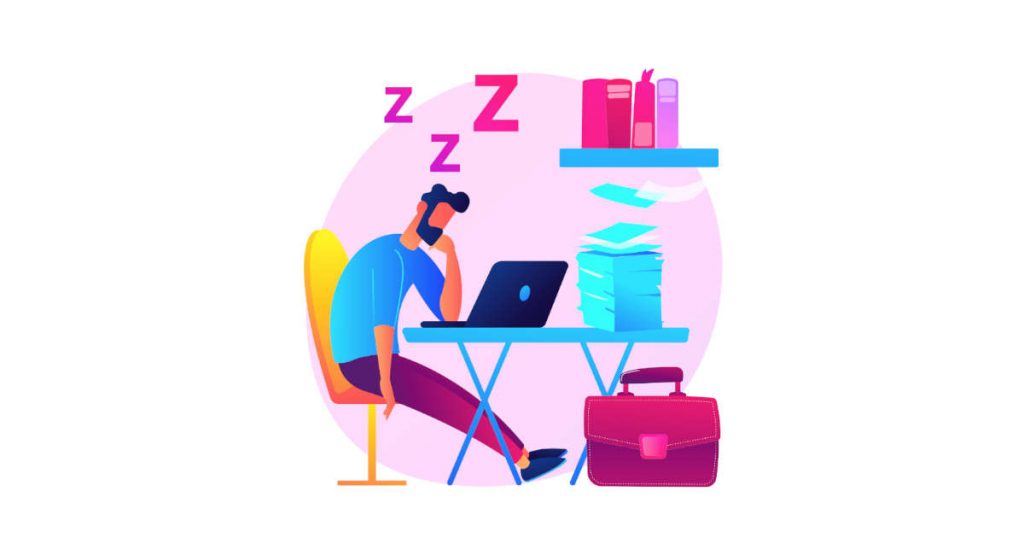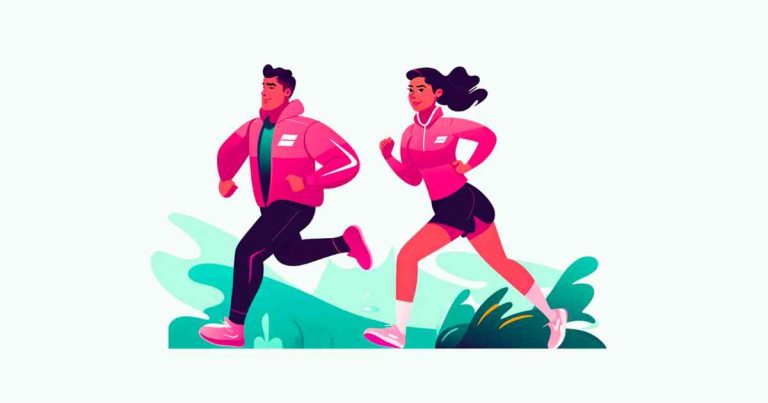A healthy lifestyle is fundamentally dependent on sleep. It is a natural process that allows the body to rest, rejuvenate and prepare for the challenges of the day ahead. However, the fast-paced modern lifestyle often robs individuals of the recommended amount of sleep, leading to sleep deprivation.
Our physical and mental health depends on getting enough good night sleep, and it also directly affects how we live our daily lives. Several factors, including professional pressures, social commitments, personal issues, and medical ailments, might contribute to lack of sleep.
Studies have shown that those who don’t get enough sleep are more prone to making mistakes, difficulty concentrating, and taking longer to complete tasks.
Effects of Sleep Deprivation:
Short-term effects of getting poor sleep
Sleep deprivation not only has an impact on our mental and cognitive health, but it may also have a negative impact on our entire well-being.
- Fatigue: A lack of sleep can cause a persistent sensation of exhaustion and poor energy levels. This can influence your capacity to do physical duties and raise your risk of accidents and injury.
- Headaches: A lack of sleep can trigger tension headaches and migraines because of increased stress and tension in the body.
- Immune system weakness: Sleep is essential for keeping a strong immune system, and a lack of sleep can impair the body’s capacity to fight infections and diseases.
- Weight gain: Sleep deprivation can affect the hormones that govern appetite and metabolism in the body, resulting in an increase in hunger and food cravings, which can contribute to weight gain.
- High blood pressure: Persistent sleep deprivation raises the chance of high blood pressure, leading to more serious health issues such as heart disease and stroke.
- Inflammation: Sleep deprivation may lead to an increase in inflammation in the body, which can lead to a variety of health problems, such as chronic pain, autoimmune illnesses, and even cancer.
Long-term effects of chronic sleep deprivation
Chronic sleep deprivation is defined as continuously not receiving enough sleep for an extended length of time, which can have serious long-term consequences for an individual’s health. Here are some further thoughts on the statement:
- Obesity: Sleep deprivation has been related to an increased risk of obesity because it alters the hormones that govern hunger and metabolism. This might result in bingeing and weight gain.
- Diabetes risk: Prolonged sleep loss has also been linked to an increased risk of acquiring type 2 diabetes. This is because sleep is essential for blood sugar homeostasis, and a lack of sleep can lead to insulin resistance and reduced glucose tolerance.
- Depression risk: Sleep deprivation has been related to an increased risk of depression. Sleep loss alters neurotransmitter levels, such as serotonin and dopamine, that control mood.
- Anxiety risk: Persistent sleep loss has been linked to an increased risk of developing anxiety. This is because sleep is essential for regulating the body’s stress response, and a lack of sleep can contribute to increased worry and stress.
- Reduced cognitive function: Prolonged sleep deprivation can impair cognitive function, such as memory, concentration, and decision-making. This might have an adverse effect on regular activities like work and school.
The impact of sleep deprivation on relationships
Sleep deprivation may have a negative influence on both personal and professional relationships.
- Irritability and mood swings: Lack of sleep can make people irritable and prone to mood changes. This can lead to stress and conflict in personal relationships and working encounters.
- Emotional regulation: Sleep deprivation can also make it difficult to manage one’s emotions, resulting in overreactions, misunderstandings, and trouble interacting effectively with others.
- Lack of energy and motivation: People who are sleep deprived frequently feel exhausted and unmotivated, which can impair their ability to participate in social activities or fully engage in conversations with others.
- Decreased empathy and compassion: Lack of sleep might impair a person’s capacity to feel empathy and compassion for others. This might lead to a lack of understanding and support in personal relationships and work.
- Bad decision-making: Those who are sleep-deprived may struggle to make smart judgements, which can influence their relationships by producing misunderstandings or poor choices in personal or professional contacts.
- Sleep affects willpower: Willpower is one of the important cognitive talents that are dependent on adequate sleep. Self-control and the capacity to synchronize our thoughts and actions require willpower. Willpower is essential at work to manage emotions, complete hard tasks, and resist distractions.

Recover Sleep Deprivation: Tips for Surviving the Day after Sleep Deprivation
Despite our best attempts, we may get sleep deprived due to various variables such as stress, worry, or other issues. Here are some suggestions for overcoming the effects of poor sleep:
Organize Your Tasks Strategically
If you haven’t slept well the night before, avoid jobs that need willpower. Work on basic things that don’t take much concentration or attention instead. Keep the things that need willpower first thing in the morning when you have more energy.
Rethink Your Mindset
The way we think about willpower can have a big influence on our capacity to use it. If you believe mental resources limit your willpower, you may feel more drained after exercising it. On the other hand, those who feel that their willpower is based on boundless resources that can be quickly replenished perform better at work on sleep-deprived days.
Alter Your Situation
If you can’t change yourself, alter the circumstances. Research shows that those who are good at using willpower avoid situations that need it. As a consequence, on days when you’re tired, attempt to stay as far away from situations that call for willpower as you can.
Watch Funny Videos
Good emotions can help us regain mental energy, and watching hilarious videos can help combat sleep deprivation’s harmful consequences. A new study discovered that watching interesting videos, like a funny anime or your favourite program on a streaming platform, during the day improves employee performance by minimizing the negative psychological consequences of willpower-intensive job demands.
Take small pauses and get your body moving
Long sitting durations might make you sleepy and sluggish, especially if you haven’t slept properly. Taking small breaks to exercise your body throughout the day will help you feel more alert and energized. Consider taking a brief stroll outside, stretching at your desk, or taking a short yoga break. This will not only make you feel more alert, but it will also help you reduce stress and enhance your general attitude.
Strategies for improving sleep
Those who struggle to get a decent night’s sleep must employ sleep-improvement strategies to improve sleep quality and quantity. Here are some additional thoughts on the previously described strategies:
- Creating a regular sleep schedule: A consistent sleep pattern is one of the most significant tactics for improving sleep. This includes going to bed and getting up simultaneously every day, including weekends. This aids in regulating the body’s internal clock, making sleeping and waking up normally simpler.
- Establishing a pleasant night-time routine: A calming bedtime routine can assist the body in signalling that it is time to sleep. Activities like taking a warm bath, reading a book, or practising relaxation techniques such as meditation or deep breathing might fall into this category.
- Providing a comfortable sleeping environment: A comfortable environment is essential for a good night’s sleep. It is critical to establish a sleep-friendly atmosphere, which may involve utilizing comfortable bedding and pillows, changing the room temperature to a comfortable level, and reducing noise and light.
- Avoiding caffeine, alcohol, and nicotine: Caffeine, alcohol, and nicotine can disturb the body’s natural sleep cycle and interfere with sleep quality. Avoiding these drugs, especially in the hours before night, is critical.
- Exercising regularly: Frequent exercise has been demonstrated to improve sleep quality and assist individuals in falling asleep faster. However, avoiding exercising too close to bedtime is critical, as this might make falling asleep more difficult.
- Handling stress: Stress and worry can disrupt sleep, making falling and remaining asleep difficult. Stress management measures such as exercise, meditation, and counselling are essential for good sleep.
Conclusion
Sleep deprivation is a widespread problem that affects many people, and the consequences can be severe in the short and long term. We can, however, lessen the harmful consequences of sleep deprivation and enhance our general well-being by taking some basic actions to improve our sleep patterns and employing ways to cope with occasional sleepless nights. We can improve our productivity, attitude, and general quality of life by prioritizing sleep. Remember that having a good night’s sleep is a need, not a luxury.







Leave a Comment